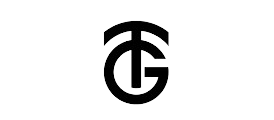Dreading the final interview for the job you’ve been dreaming of? Worry no more. Handle this crucial part of the job interview process with ease. Learn how to respond confidently to the final or executive interview questions with this guide. Get insights on effective strategies for tackling those last-round queries that can determine your candidacy’s success. Equip yourself with the ability to respond to the interview questions. They might sound seemingly simple, but somehow get you intimidated when caught off-guard.
Let’s go over a few examples of the most commonly asked interview questions and how to answer them:
Question #1: Tell me about yourself.
That is going to be the first question you usually get asked at an interview. The majority of people get fazed by this question, as it can sometimes be difficult to summarize who you are when asked. But fret not. Simply sum it up by touching on these in your answer:
Your field or industry background.
The number of years you’ve been working, along with your roles and responsibilities.
A relevant skill and key strength.
A hobby or interest that showcases your personality.
Question #2: What are your strengths & weaknesses?
Another frequently asked question is about your strengths and weaknesses. For highlighting your strengths without sounding overconfident, mention:
A skill or quality relevant to the job.
How you’ve honed that through experience.
Previous roles or projects that speak for that skill.
To list one or two weaknesses, add:
A skill that still needs to be enhanced.
A strategy as to how you plan to or have been mitigating that weakness.
Question #3: Why this position/company
Prep yourself, and do your research on the company and that particular role. The worst you could do is get caught off-guard! So do your homework. In your response, include:
A specific aspect of the role or company that excites you.
A recent initiative or achievement of the company.
How a relevant skill makes you suited to help achieve company’s goals.
Question #4: Describe a challenging situation and how you handled it
The answer should establish why you are the perfect fit for the role. Your response should be a mix of:
Your role at the previous company.
A challenging situation (for example, a tight deadline or an unexpected setback).
The actions you took to resolve that situation.
The positive outcome or resolution of the matter.
Question #5: Share your long-term career goals?
Your aim should always be to leave a lasting impression on your interviewer. Ensure that impression is that of an ambitious and dedicated employee. Speak briefly of:
A specific long-term career milestone you hope to achieve.
A short-term goal or objective.
How the position at this company aligns with your goals.
Read more about boost your brand
Question #6: How do you handle stress or pressure?
The interviewer is looking for a sign that you can work well under stress or won’t cave in under pressure. So, to put their mind at ease, reference to:
A coping mechanism or strategy that you use to manage stress.
How a certain skill that you have helps you work through high-pressure situations.
Question #7: What motivates you?
Another frequently asked question is about what drives you. When asked this question, comment on:
What inspires you.
A certain aspect of your work that motivates you.
How that would contribute to the team as a whole.
Question #8: Describe a time when you worked as part of a team.
This question means they are looking for an affirmation that you are a team player. That you would be able to work well within a team or lead a team successfully. Include the following:
How you collaborated in your team at your previous company.
A brief description of the project or initiative.
Your specific role or contribution to the project.
The outcome of the project.
Question #9: What relevant experience do you have for this role?
The fact is that you must convince the interviewer that you are suitable for this role. When presented with this opportunity, your answer should include:
A certain skill, qualification, or experience relevant to the role.
How it helped you in your previous roles or projects.
A relevant accomplishment that demonstrates your expertise.
Additional qualifications such as certifications or trainings.
Question #10: Do you have any questions for us?
Never respond with a ‘no’!. Show your interest in the company and the role by asking questions about it. So, when they ask, answer them by inquiring about:
An aspect of the company or role you want more information on.
Things like company culture, team dynamics, opportunities for growth and the company’s trajectory for the future.
Clarification regarding any specific topic discussed in the interview.
Conclusion
Addressing the final interview questions is the last step towards getting your desired job. You can effortlessly glide through this stage and leave a lasting impression on your potential employer by implementing the strategies that are outlined in this guide. Ace your final interview and take the next step towards achieving your career goals with preparation. Best of luck!

